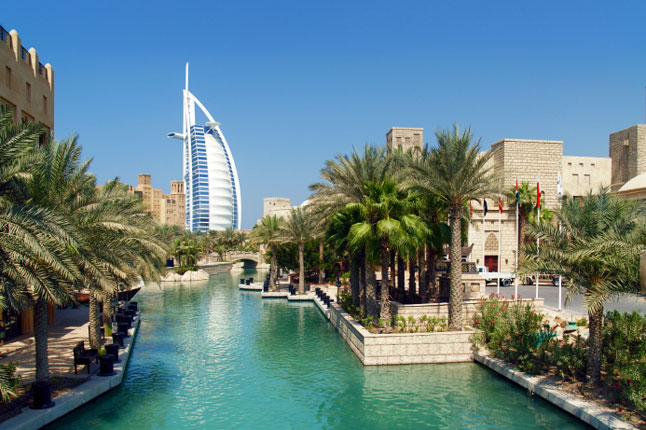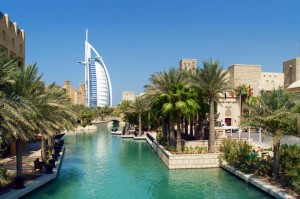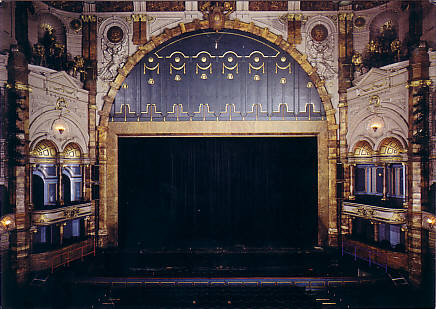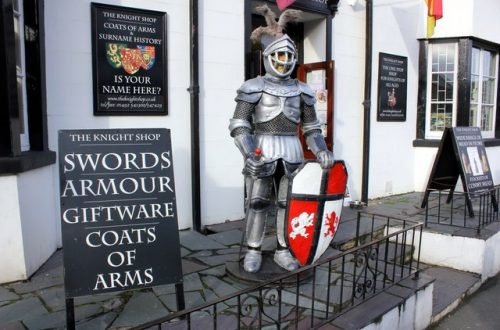
A Guide to Dubai’s Culture
 If you’re planning a jaunt to Dubai, lucky you! Luxury hotels, amazing restaurants, brilliant shops, gorgeous beaches, fun water parks – the city seems to have something for pretty much everyone. But, before you go, it’s really important to get to grips with the local culture – a lot of the city’s customs are rooted in Islamic beliefs, so in order to avoid inadvertently offending the locals, you need to be au fait with what these are.So, I’ve put together a quick guide to these, as well as other useful bits and bobs, like some information on the local cuisine and language. Enjoy!Laws and customs
If you’re planning a jaunt to Dubai, lucky you! Luxury hotels, amazing restaurants, brilliant shops, gorgeous beaches, fun water parks – the city seems to have something for pretty much everyone. But, before you go, it’s really important to get to grips with the local culture – a lot of the city’s customs are rooted in Islamic beliefs, so in order to avoid inadvertently offending the locals, you need to be au fait with what these are.So, I’ve put together a quick guide to these, as well as other useful bits and bobs, like some information on the local cuisine and language. Enjoy!Laws and customs
Ok, let’s get the most serious stuff out of the way first, focusing on the things that are absolute holiday essentials.
• Swimwear is only allowed on beaches or at pool sides. So, if you’re tempted to beat the heat by strolling around the city in your swimming costume, I’m afraid that’s a major no-no.
• Continuing the clothing theme, women need to dress conservatively in public. This means no shorts or skirts that come above the knee, and no bare midriffs. And men do not get off scot-free – they aren’t permitted to wear shorts. So, pack some lightweight trousers (linen’s a pretty good fabric for this kind of weather).
• If you’re on a romantic holiday, make sure you keep it under wraps when you’re out and about, as kissing or holding hands in public can get you arrested. It’s also worth remembering that swearing or making any rude gestures can land you in similar trouble.
• During Ramadan, don’t consume food or drink in public.
• You can only drink alcoholic beverages in licensed nightclubs or hotels.
A quick guide to traditional dress
When you arrive in Dubai, you’re likely to see lots of locals in traditional dress. So, I thought I’d give you a brief outline of what this is. The long white gown is called a kandura, and it is paired with either a plain or chequered headscarf (a guthra) fixed in place with an egal, which is a black band. While traditional dress is typically accompanied by sandals (na-aal), this is actually fairly rare to see in Dubai, with most of the locals preferring shoes.
Language and food
The official language of Dubai is Arabic, but you’ll quickly realise that the vast majority of residents do speak English. As the city is so multicultural and has a big expat community, most of the signs are also in English. So, you don’t need to worry too much about language barriers while you’re here! That said, it’s always polite to at least attempt to speak in the local language, so buy a phrasebook and give it a go.
Dubai doesn’t really have a distinct cuisine of its own, but there are a lot of Middle Eastern dishes it does extremely well. These include falafel, wara enab (rice cooked with spices and wrapped in an edible vine leaf) and shawarma (minced chicken or lamb, cooked with tomatoes, pickles and garlic, served in a soft roti – a local flatbread).
One of the best things about Hayes & Jarvis Dubai trips is that, thanks to the city’s multicultural nature, you can try cuisine from all the over the world here. Personally, I think since you’ll be in the Middle East it’d be a real shame to miss out on sampling dishes from the region, but there’s plenty of scope to take your culinary adventures a bit further as well.





